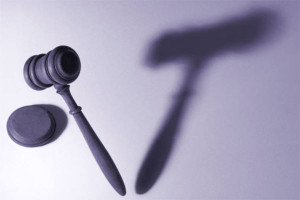John Doe special prosecutor appeals judge’s ruling quashing subpoenas

By M.D. Kittle | Wisconsin Reporter
MADISON, Wis. – The special prosecutor of a secret investigation into dozens of conservative organizations is asking a state appeals court to overturn the probe’s presiding judge’s recent ruling quashing several subpoenas employed by investigators.
Attorney Francis D. Schmitz has filed five petitions seeking a a supervisory writ against Judge Gregory A. Peterson, who, as the District IV Court of Appeals describes, is overseeing related John Doe proceedings.
JUDICIAL APPEAL: Francis D. Schmitz, special prosecutor in a secret John Doe probe into dozens of conservative groups, is asking an appeals court to overturn a judge’s ruling that quashed several subpoenas in the investigation.
The Madison-based appeals court, which previously denied motions to stop the investigation, consolidated the petitions and ordered that Peterson, “or counsel acting on the judge’s behalf,” must file a response by March 21.
Drawing on the Cloak and Dagger nature of the John Doe, the court added, “If the judge believes that discussion of one or more of the issues raised in the writ petition would reveal information subject to the secrecy orders, he may submit all or part of his response under seal.”
In January, Peterson tossed out several subpoenas issued by the probe’s previous presiding Judge, former Kenosha County Circuit Judge Barbara A. Kluka.
According to the ruling, which remains under seal but was obtained by the Wall Street Journal, the subpoenas “do not show probable cause that the moving parties committed any violations of the campaign finance laws,” Peterson wrote.
The judge also ordered the return of property to the targets of the John Doe probe, launched in August 2012 by the office of Milwaukee County District Attorney John Chisholm, a Democrat. Investigators have targeted organizations like Americans for Prosperity, Wisconsin Club for Growth and the Republican Governors Association in a hunt for alleged illegal coordination between conservative organizations and Republican Gov. Scott Walker’s campaign.
Sources close to the investigation said Schmitz pledged to appeal it.
It’s appears the prosecutor has come through on that threat, according to campaign and election law expert Rick Esenberg.
“I would assume this would be his way of appealing quashing the subpoena,” said Esenberg, founder, president and general counsel of the Wisconsin Institute for Law & Liberty, a Milwaukee-based public interest law firm.
But Wisconsin’s unusual John Doe proceedings don’t follow the same kind of appeals channels afforded to the standard legal process. The investigations are similar to grand juries, without juries. The presiding judge is vested with significant power, to subpoena witnesses, issue complaints, and appoint a special prosecutor.
“An order of a John Doe judge is not an order of a circuit court that can be appealed,” Esenberg said. “The way to get it appealed to a higher court is to get a supervisory writ.”
Esenberg said the standard for getting a John Doe ruling overturned is somewhat higher than the standard for getting a lower court’s decision overturned on appeal.
The attorney said Schmitz is entering fairly rare ground.
“I don’t think seeking review of a John Doe order is something that happens on a regular basis for anybody,” Esenberg said.
Contacted Thursday afternoon, Schmitz declined to comment.
In his action, Schmitz also designates eight unnamed “movants” as respondents. Said “movants” appear to be the conservative organizations and their executives that Peterson ruled in favor of, quashing the prosecution’s subpoenas. The appeals court, however, states Peterson is the only proper respondent because the appeals court-based relief Schmitz seeks is “directed solely toward the John Doe judge” based on the judge’s quashing of the prosecution’s subpoenas. The targets, the court wrote, should instead be designated as interested parties.
“The (appeals) judge is saying, ‘You don’t have to name them like you would in an appeal. The respondent is really the judge,” Esenberg said. “It’s a procedural point.”
The court order was sent to several individuals, including state Attorney General J.B. Van Hollen, serving as legal counsel for Peterson, the attorneys for the three John Doe targets who seek a stay of the investigation, and clerks of the circuit courts where the multi-county probe is taking place.
Schmitz has also filed a series of procedural motions with his writ petitions. He asks the court to:
- consolidate the five petitions;
- reduce the number of papers the petitioner must file;
- seal the writ petition and a memorandum and an affidavit filed in support of the petition
- and relieve the special prosecutor of the obligation to serve on the eight movants more than a redacted copy of his affidavit filed in support of the petition.
The appeals court obliged on grounds of judicial efficiency and in compliance with the secrecy order in place.
Contact M.D. Kittle at mkittle@watchdog.org
The post John Doe special prosecutor appeals judge’s ruling quashing subpoenas appeared first on Watchdog.org.







